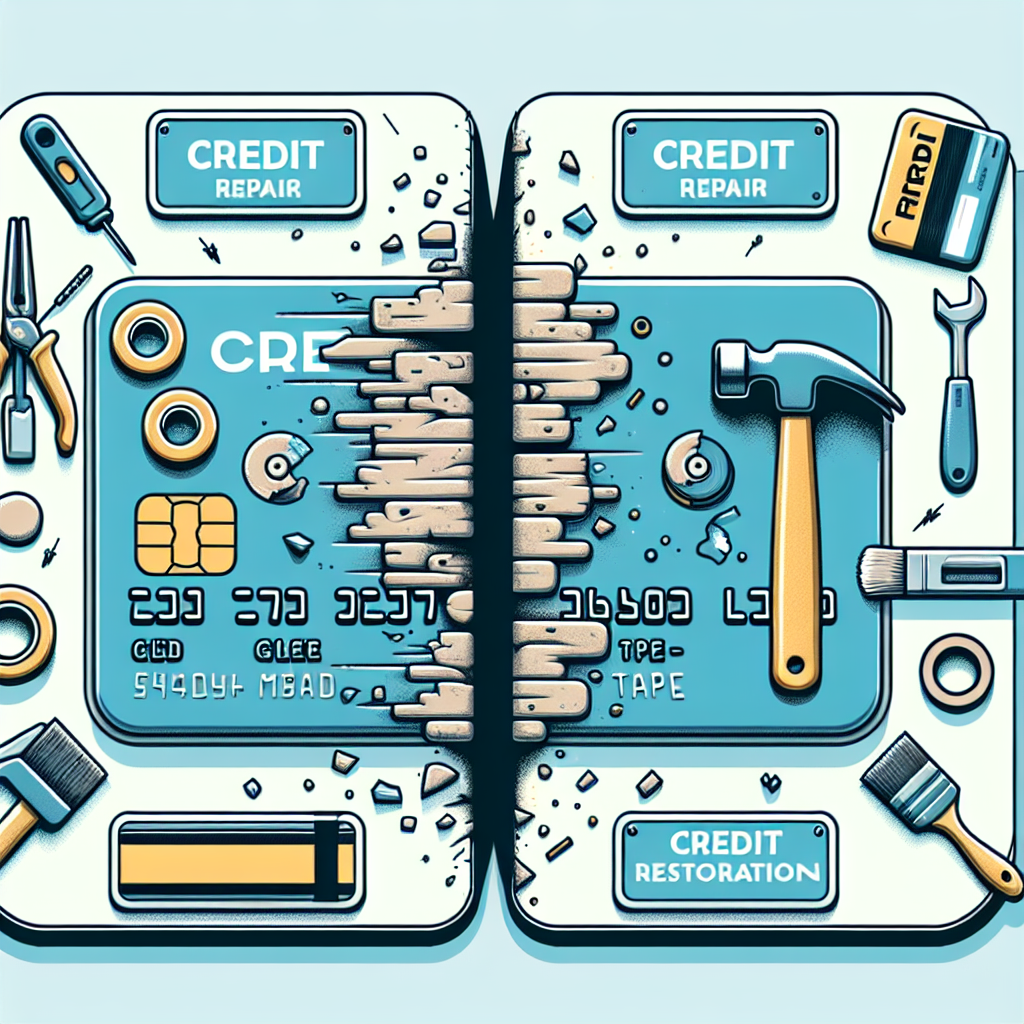When navigating the world of credit, it’s essential to understand the difference between credit repair and credit restoration. Many consumers use these terms interchangeably, but they entail different processes and approaches to improving your credit profile. In this article, we’ll explore the distinctions between credit repair and credit restoration, helping you make informed decisions about your financial future.
Understanding Credit Repair
What is Credit Repair?
Credit repair refers to the process of identifying, disputing, and removing inaccurate or negative information from your credit report. This can include late payments, accounts in collections, and other derogatory marks that may lower your credit score. Consumers can either undertake this process independently or seek assistance from professional credit repair agencies.
How Does Credit Repair Work?
- Reviewing Your Credit Report: The first step in credit repair is obtaining and reviewing your credit report from all three major bureaus: Experian, Equifax, and TransUnion.
- Identifying Errors: Look for inaccuracies in your report, such as incorrect account balances, accounts that aren’t yours, or late payments that were paid on time.
- Disputing Errors: You can file disputes with the credit bureaus either on your own or with the help of a credit repair service. The bureau is legally obligated to investigate your claims.
- Follow Up: After a dispute is initiated, the credit bureau must investigate and respond within a specific timeframe. If the information is found to be inaccurate, it will be removed from your report.
Potential Benefits of Credit Repair
- Quick Fixes: Credit repair can lead to quick improvements in your credit score by removing negative marks.
- Cost-Effective: Many individuals can handle credit repair themselves at little or no cost.
- Empowerment: Learning about your credit and how to maintain it can foster a sense of financial empowerment.
Exploring Credit Restoration
What is Credit Restoration?
Credit restoration is a broader approach aimed at improving your overall credit profile. Unlike credit repair, it not only focuses on disputing inaccuracies but also involves building positive credit behavior and establishing a solid credit history. Credit restoration emphasizes long-term strategies to achieve a healthier financial standing.
How Does Credit Restoration Work?
- Comprehensive Credit Evaluation: The process begins with a thorough assessment of your entire credit profile, including debts, payment history, and credit utilization.
- Developing a Plan: Based on the evaluation, a customized plan is created. This might involve paying down existing debts, setting up new credit accounts, or acquiring secured credit cards.
- Improving Credit Behavior: Credit restoration encourages proactive habits like making on-time payments, reducing balances, and limiting new credit inquiries.
- Ongoing Support: Many credit restoration services provide ongoing education and support to help maintain and monitor your credit health.
Potential Benefits of Credit Restoration
- Holistic Approach: Focuses not just on errors but on overall credit health and behavioral changes.
- Long-Term Solutions: Promotes habits leading to sustainable credit improvements rather than quick fixes.
- Guided Support: Provides a structured approach with expert guidance through your credit journey.
Key Differences Between Credit Repair and Credit Restoration
Focus of Efforts
- Credit Repair: Primarily focuses on identifying and disputing negative inaccuracies on your credit report.
- Credit Restoration: Encompasses a wider range of strategies that include improving and maintaining overall credit health.
Time Frame and Results
- Credit Repair: Often yields quicker results, as disputes can lead to immediate changes in your credit report.
- Credit Restoration: Results may take longer as it involves habit changes and the rebuilding of your credit profile.
Cost Factors
- Credit Repair: Can be done at home for free or with modest costs when using professional services.
- Credit Restoration: May involve additional costs due to the comprehensive services and ongoing support provided, but offers a more extensive process.
Conclusion
Understanding the differences between credit repair and credit restoration is vital for anyone looking to improve their credit standing. If you’re dealing with inaccuracies in your credit report, credit repair may be the more immediate solution. However, if you prefer a holistic approach that ensures long-term financial health, credit restoration may be the best route for you.
Ultimately, both processes can help you achieve your financial goals and improve your creditworthiness. Assess your current situation, define your goals, and choose the path that aligns best with your needs. Investing in your credit health today is an investment in your financial future.

